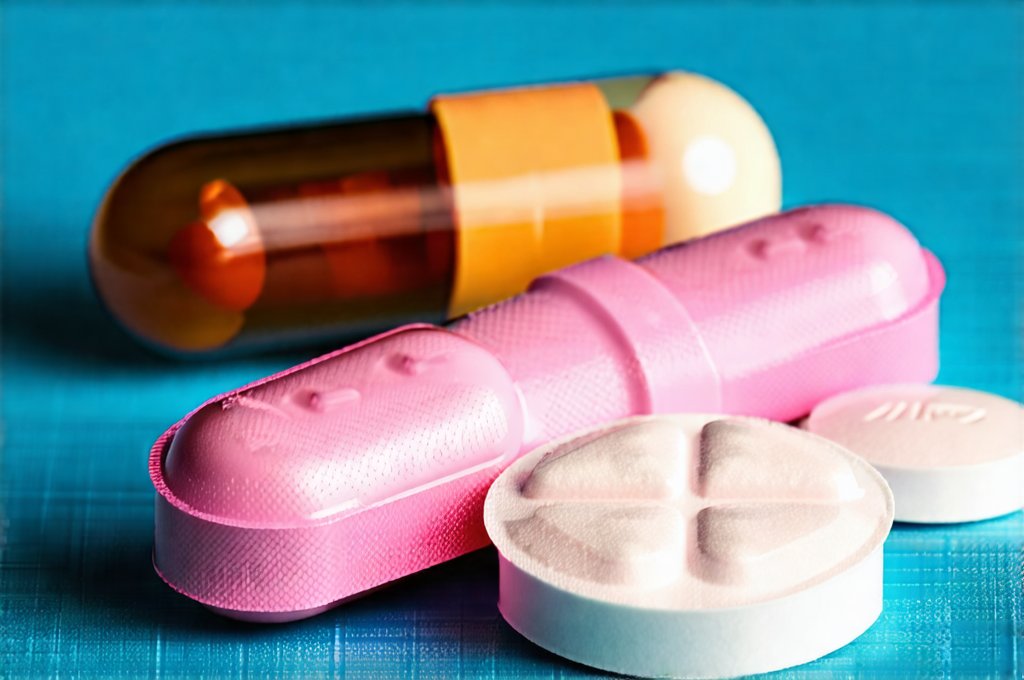When you’re battling a cold, finding relief is paramount. Over-the-counter (OTC) medications become lifelines, promising to ease symptoms like congestion, coughs, and runny noses. However, for many people, this quest for comfort can come with an unwelcome side effect: temporary bloating. It’s not uncommon to feel puffier or more uncomfortable after taking cold medication, leading to questions about why these remedies sometimes seem to cause digestive upset. Understanding the mechanisms behind this phenomenon requires delving into the ingredients commonly found in these medications and how they interact with our bodies. This isn’t necessarily a sign of an allergic reaction; often it’s a predictable consequence of the way certain compounds affect our systems, particularly when dealing with fluid balance or histamine responses.
The issue rarely stems from a single ingredient but rather a combination of factors – the medication itself, individual sensitivities, and even how quickly fluids are processed by the body. It’s important to remember that everyone reacts differently, and what causes bloating in one person may not affect another. Often, these effects are mild and transient, resolving within hours as the medication is metabolized. However, persistent or severe bloating should always be discussed with a healthcare professional. This article will explore the common culprits behind cold medication-induced bloating, offering insight into the underlying mechanisms and potential strategies for minimizing discomfort. If you suspect food intolerances are contributing to your discomfort, it’s worth investigating further.
Common Culprits in Cold Medications & Bloating
Many OTC cold medications aren’t designed specifically to address digestive concerns; they target respiratory symptoms. However, certain ingredients used to combat these symptoms can inadvertently contribute to bloating. Antihistamines are a prime example. First-generation antihistamines, like diphenhydramine (Benadryl) and chlorpheniramine, are frequently included in cold and allergy medications because of their potent ability to dry up nasal passages and reduce sneezing. However, they do this by blocking histamine receptors throughout the body – not just those involved in allergic reactions. This widespread blockade can lead to a reduction in gut motility, meaning food moves more slowly through the digestive system. Slower digestion gives gases more time to build up, leading to bloating and discomfort.
Beyond antihistamines, decongestants like pseudoephedrine and phenylephrine can also play a role. These medications work by constricting blood vessels in the nasal passages, reducing swelling and congestion. However, this vasoconstriction isn’t limited to the nose; it can affect blood flow throughout the body, including the digestive system. Reduced blood flow to the gut can slow down digestion and potentially contribute to bloating. Some decongestants may also have mild anticholinergic effects similar to first-generation antihistamines, further exacerbating the issue. Additionally, many cold medications contain excipients – inactive ingredients used as binders, fillers, or coatings. These excipients, while generally safe, can sometimes cause digestive upset in sensitive individuals, leading to bloating and gas. Understanding how some foods contribute to discomfort may also be helpful.
Finally, it’s crucial to recognize that combination medications are frequently used for colds. These often pack multiple active ingredients into a single pill or liquid, increasing the likelihood of experiencing side effects related to one or more components. A seemingly simple cold remedy could contain an antihistamine, decongestant, and pain reliever – each with its own potential to contribute to bloating. Understanding which ingredients are causing the issue is the first step toward managing it effectively. You might also consider if water itself could be a factor in your symptoms.
Fluid Balance & Cold Medications
The body’s ability to maintain fluid balance is intricately linked to several physiological processes, including kidney function, hormone regulation, and electrolyte levels. Certain cold medications can subtly disrupt this delicate equilibrium, contributing to bloating. Antihistamines, particularly first-generation options, can interfere with the kidneys’ ability to regulate sodium and water excretion. This can lead to increased fluid retention, causing a feeling of puffiness or bloating, especially in areas like the abdomen and extremities. It’s not about drinking excessive amounts of water; it’s about the body’s inability to efficiently process and eliminate fluids.
Decongestants, by constricting blood vessels, can also impact kidney function indirectly. Reduced blood flow to the kidneys may slightly decrease their efficiency in filtering waste products and regulating fluid balance. While this effect is usually minimal, it can be more pronounced in individuals with pre-existing kidney conditions or those taking other medications that affect renal function. Furthermore, many cold remedies encourage increased fluid intake – a sensible strategy for thinning mucus and preventing dehydration when you’re sick. However, if the kidneys aren’t functioning optimally due to medication side effects, this increased fluid intake can exacerbate bloating. It is important to remember that skipping breakfast can also disrupt your digestive routine and potentially worsen symptoms.
It is important to note that individual hydration levels play a significant role. People who are already prone to water retention (due to hormonal fluctuations, dietary habits, or medical conditions) may be more susceptible to bloating from cold medications. Recognizing your body’s natural tendencies and adjusting fluid intake accordingly can help minimize discomfort.
Minimizing Bloating: Strategies & Considerations
Bloating caused by cold medication is usually temporary and manageable. Here are some strategies to consider: – Choose wisely: Opt for second-generation antihistamines (like loratadine, cetirizine, or fexofenadine) when possible. These tend to have fewer anticholinergic effects and are less likely to cause drowsiness and digestive upset. – Single-ingredient options: If you only need relief from a specific symptom (e.g., congestion), choose a medication that addresses just that issue rather than a combination product. This minimizes exposure to potentially bloating-inducing ingredients. – Stay hydrated, but moderate intake: While adequate hydration is important when you’re sick, avoid excessive fluid consumption if you’re prone to bloating.
Beyond medication choices, lifestyle adjustments can also help: – Dietary modifications: Avoid gas-producing foods (beans, broccoli, carbonated drinks) and consider incorporating probiotics into your diet to support gut health. – Gentle movement: Light exercise, like walking, can stimulate digestion and reduce bloating. – Timing of medication: Taking medications with food may sometimes help mitigate side effects, although this isn’t a universal solution. – Consult your doctor: If bloating is severe or persistent, consult a healthcare professional to rule out other causes and discuss alternative treatment options. You should also be aware that staying upright isn’t always enough to prevent discomfort.
Understanding Individual Sensitivities & Allergies
Everyone’s body reacts differently to medications. What causes bloating in one person may not affect another. Individual sensitivities play a significant role; some people are simply more prone to experiencing digestive side effects from certain ingredients. This could be due to variations in gut microbiome composition, enzyme deficiencies, or other physiological factors. Additionally, undiagnosed food allergies or intolerances can sometimes mimic medication-induced bloating, making it difficult to pinpoint the exact cause.
It’s also important to consider potential drug interactions. If you’re taking other medications (prescription or OTC), they could interact with cold remedies and exacerbate side effects, including bloating. Always inform your healthcare provider about all the medications you’re taking before starting a new treatment regimen. Furthermore, some individuals may have allergies to excipients found in cold medications. While rare, these allergic reactions can manifest as digestive upset, including bloating, nausea, and diarrhea. Reading ingredient lists carefully and choosing hypoallergenic options when available can help minimize this risk.
The Role of Gut Health & Digestion
A healthy gut microbiome is essential for optimal digestion and overall well-being. An imbalance in the gut flora (dysbiosis) can make individuals more susceptible to digestive upset, including bloating. Certain cold medications, particularly those containing antihistamines or decongestants, can disrupt the delicate balance of the gut microbiome, potentially exacerbating bloating symptoms. This is because these medications can affect gut motility and alter the composition of microbial communities.
Supporting gut health through dietary changes and probiotic supplementation may help mitigate medication-induced bloating. Probiotics introduce beneficial bacteria into the gut, promoting a healthier digestive environment. Fermented foods like yogurt, kefir, and sauerkraut are natural sources of probiotics. However, it’s important to choose strains that have been shown to be effective for digestive health. Additionally, consuming fiber-rich foods promotes regular bowel movements and helps prevent constipation, which can contribute to bloating. Ultimately, a holistic approach that addresses both medication choices and gut health is the most effective way to manage cold medication-induced bloating and maintain optimal digestive comfort. It’s also worth noting that some people react to bananas which can exacerbate symptoms.


















